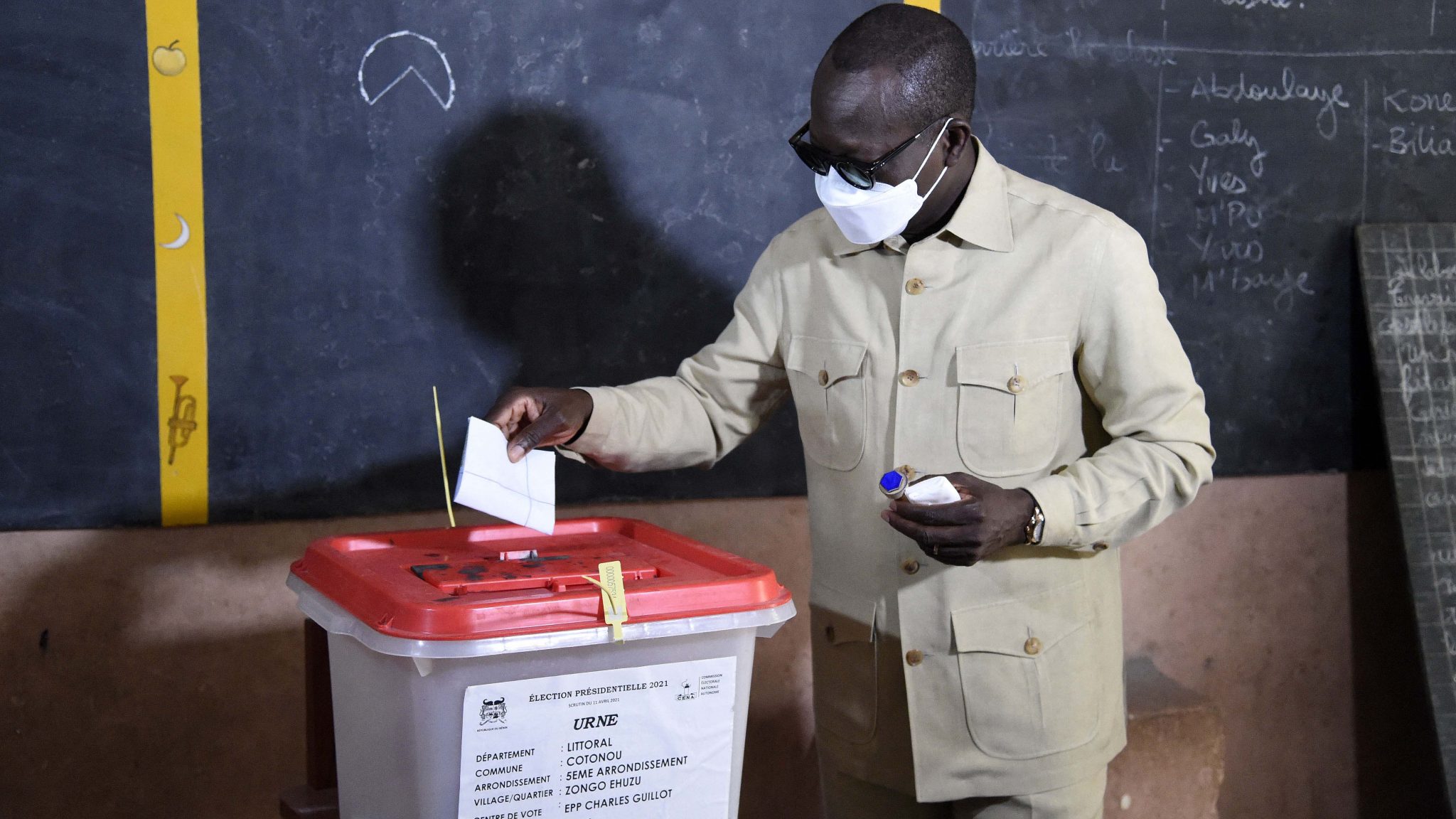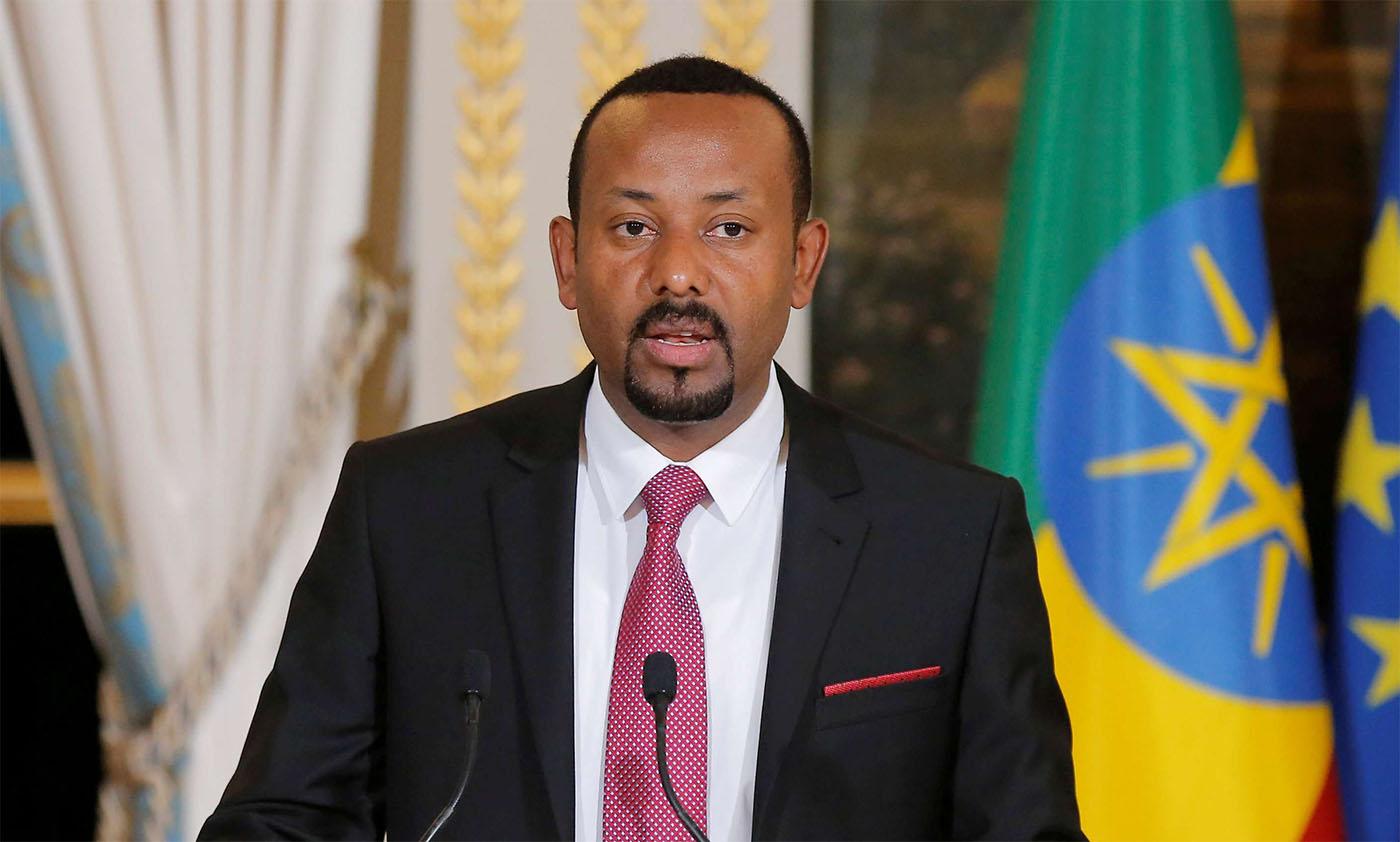
Benin President Patrice Talon looked set to win re-election on Sunday after a tense ballot, with critics accusing him of rigging the race in his favour by sidelining opposition leaders.
A cotton tycoon first elected in 2016, Talon faced off against two little-known rivals while some of the West African country’s key opposition leaders boycotted the election.
Benin was once praised as a vibrant democracy in an often troubled region, but most opposition figures are now exiled, disqualified by electoral reforms or have been targeted for investigation by a special court.
Tensions rose ahead of the vote, with protests breaking out in several cities in opposition strongholds though voting went ahead mostly peacefully on Sunday.
In central and northern Benin, protesters blocked hundreds of cars and trucks travelling between the coast and the north.
Sitting between Africa’s powerhouse Nigeria and neighbouring Togo, Benin has seen some economic successes under Talon, who has played up his record while campaigning. He promised a “KO” first-round win.
“We must educate each other so that frustrations do not give rise to violence,” said Talon, 62, as he voted on Sunday at a polling station in Cotonou.
But Joel Aivo, one of the opposition leaders disqualified from running, said he would not vote and had urged others to boycott the poll.
“The president has chosen to run against himself in this unprecedented election,” the FRD opposition movement said, adding that candidates had been “driven into exile, arrested, thrown in prison”.
Voter turnout was low compared to with past elections, according to initial data collected by a group of civil society organisations that deployed 1,400 observers. Official turnout was not yet announced.
On Thursday, in the central city of Save, two people died and five others suffered gunshot wounds after troops fired tear gas and live rounds in the air to break up a demonstration.
The streets of Save were empty on Sunday, with all businesses closed and soldiers were patrolling in the city. Some polling stations remained empty and some voting material was burned, an AFP reporter on the scene said.
A civil society observation mission said that at midday polling stations in Tchaourou and Bante, strongholds of former President Thomas Boni Yayo, had not yet opened.
“This is the first time in 30 years that I have not voted in a presidential election. This election is sad, it is not a celebration, because our democracy is wounded,” said 53-year-old waiter George.
“Yes President Talon made roads, electricity is good, but the restriction of freedoms, and opposition arrests are not normal.”
More than 4.9 million people were eligible to vote across more than 15,500 polling stations.
Final results are not expected until Monday or Tuesday.
Calls for calm
Talon’s backers have rejected accusations the election will be fixed, saying all the conditions are there for a fair vote.
The electoral commission’s president Emmanuel Tiando told AFP on Saturday that despite delays in sending electoral material to the north, there was “nothing preventing this election from taking place”.
The US, German, French and Dutch embassies as well as the EU delegation in Benin had all called for calm and for the vote to go ahead in a free and transparent manner.
The streets of the economic capital Cotonou remained quiet throughout the day, but many feared potential violence when the results are announced.
“I went to vote because it is a civic duty, but also because I want the reforms to continue,” one voter said in Cotonou, asking not to be named. “The president built the roads and finally things change. You can’t make an omelet without breaking some eggs.”
Following 17 years of military rule along Marxist-Leninist lines, the former French colony opened up into a multi-party democracy in 1990.
But since Talon won power as an independent candidate, critics say he has used a special economic crimes and terrorism court and electoral reforms as tools to disqualify the opposition.
“I support the president because we had so many problems before. Water shortages and power cuts… now it’s much better,” said Ulrich Adjalla in Cotonou.
“The president can’t be good for everyone,” said the unemployed 28-year-old, but “I trust him to create jobs for this country’s youth.”






